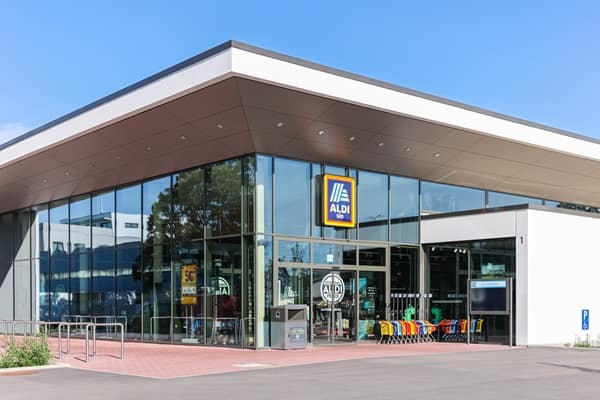Bussiness
Aldi tops UK food hygiene rankings in surprising H1 2024 results – London Business News | Londonlovesbusiness.com

As we reach the midpoint of 2024, financial analysts are buzzing with discussions about the retail sector’s economic performance.
However, there’s another critical metric that deserves our attention: food hygiene ratings. For food retailers, maintaining high hygiene standards isn’t just about compliance—it’s a fundamental aspect of brand trust and consumer safety.
Our analysis of the Food Standards Agency data for the first half of 2024 reveals some interesting insights into how the UK’s major supermarket chains are performing in this crucial area.
Aldi leads the pack with an impressive 99.1% of its stores receiving a ‘Pass’ rating. This consistent performance across their network underscores the importance the discount retailer places on food safety and hygiene. Close behind is Marks and Spencer at 98.1%, demonstrating that premium retailers are equally committed to maintaining high standards.
The league table of ‘Pass’ ratings presents some surprises:
Aldi: 99.1%
Marks and Spencer: 98.1%
Lidl: 96.2%
The Co-Op: 96.1%
Iceland: 95.9%
Tesco: 94.9%
Asda: 94.4%
Waitrose: 93.8%
Morrisons: 93.0%
Sainsbury’s: 92.0%
Co-Op: 90.9%
It’s worth noting that while all major retailers are performing well, with pass rates above 90%, there’s still room for improvement, particularly for those at the lower end of the table.
Louis Ryan, Food Guard’s food safety expert, comments on the findings: “These results are encouraging overall, but they also highlight the ongoing challenge of maintaining consistent hygiene standards across large retail networks. The fact that even the top performers haven’t achieved 100% compliance shows that there’s always room for improvement in food safety practices. Retailers must remain vigilant and continually invest in training and systems to ensure the highest standards of food hygiene.”
The data also reveals some interesting patterns. Discount retailers Aldi and Lidl are both in the top three, challenging the perception that lower prices might mean compromised standards. Meanwhile, some traditional ‘Big Four’ supermarkets like Sainsbury’s and Morrisons find themselves lower in the rankings, suggesting there might be challenges in maintaining consistent standards across their larger store networks.
It’s crucial to remember that these percentages represent real stores and real consumer experiences. Even a small percentage of stores not meeting the ‘Pass’ standard can affect thousands of shoppers and potentially harm a brand’s reputation.
Moreover, in an era where consumers are increasingly conscious about food safety and quality, these hygiene ratings are likely to play a more significant role in shopping decisions. Retailers who consistently maintain high standards across all their locations are not only ensuring consumer safety but also building brand loyalty and trust.
As we move into the second half of 2024, all eyes will be on these retailers to see if they can maintain or improve their standings. The challenge for those at the top will be to maintain their high standards, while those lower down the table will need to focus on bringing more of their stores up to the ‘Pass’ level.
In conclusion, while we often focus on financial metrics when assessing retail performance, this data serves as a crucial reminder that in the food retail sector, hygiene standards are equally important. They’re not just about avoiding fines or bad publicity—they’re about fulfilling the fundamental promise of safe, quality food that every retailer makes to its customers.
As consumers, we should celebrate the high overall standards across the industry, but also remain vigilant and supportive of efforts to push these standards even higher. After all, when it comes to the food we eat, excellence should be the minimum standard.










